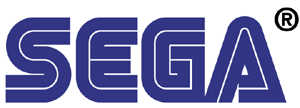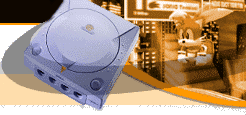"The reasons why the Dreamcast will never see its third birthday." - by Retrovertigo - Page 2/2

|
SegaNet, the Dreamcast's online gaming network and ISP (Internet Service Provider), was a very reliable service to play online games. SegaNet was streamlined specifically for online play through the Dreamcast modem, and indeed it was very much so. NFL 2k1 and Quake 3: Arena were some of the first fast-paced online games for the Dreamcast and they worked like a charm over a simple modem connection. However, Sega was unable to properly get SegaNet off the ground. I know from first-hand experience, that Sega had a lot of great ideas that were never executed properly with SegaNet. If subscribers signed up for an 18-month plan, they would receive a money rebate for $200, which theoretically meant a free Dreamcast. How cool is that? Of course, it was very cool, but months and months went by and as a SegaNet subscriber, I received absolutely nothing, nor was I charged for using the service, and I was quite upset. Eventually, Sega finally started charging for online service, and had people re-subscribe to SegaNet. Unfortunately, a few months later, they closed shop and recommended that current SegaNet subscribers use Earthlink for online Sega gaming - which is where my current Internet account resides.
SegaNet, as an online gaming network, (when it wasn't being cancelled) was fantastic, but as an ISP it was terrible. It was very "user unfriendly" and if I didn't have experience with computers or the Internet, I would have no idea where to go or what to do. Earthlink is a much better ISP, and understandably, SegaNet wasn't really about surfing the 'Net, it was more about the games.
At the beginning of November, Sega started charging $9.95 for monthly fees for online gaming. As a subscriber to Earthlink for my ISP, and paying $19.95 a month for that, I am disappointed that I have to shell out an additional $9.95 to play online games, and I refuse to do so. There are no scheduled games to be released for the Dreamcast after November, and this move doesn't really make sense.
I'm getting ahead of myself here, because SegaNet probably wouldn't have faltered if it weren't for Sega's announcement of their departure from hardware development.
Ask any Sega fan what they felt earlier this year when Sega announced that they would be a platform-agnostic third-party developer and would no longer support their own Dreamcast hardware by 2002. I know from first-hand experience that a huge percentage were angered, confused and felt betrayed.
One thing that bothered me the most was how Sega of America's Peter Moore would openly criticize the PlayStation 2, especially when Sony had some problems during the PS2's October 2000 launch. The reason I was angry was because when Sega made their announcement that they would be developing software for all video game consoles, they admitted that their first-party developers were receiving SDKs (Software Development Kits) in October so that Sega could start create games for the PlayStation 2. In other words, while he knew that Sega would be going third-party he openly slammed a console that they would eventually support in the future. It confuses the fans, and criticizing Sony was something that Sega shouldn't have done so openly. I think if Sega was more honest with its fan base, and slowly broke their gamers into the "bad news" about their console agnostic plan, they may have been able to handle this situation in a better way.
The February 2001 issue of the Official Dreamcast Magazine has a small article titled "Sega teams will develop for multiple platforms... Relax, it's not what you think." The article basically says that the Dreamcast would remain Sega's main focus, but would deploy its intellectual properties (franchise characters like Sonic) to handheld platforms (like the GameBoy or GameBoy Advance) and would not "include any other video game consoles." If only they really knew what was just around the corner.
Because of Sega's Dreamcast departure announcement, many third-party developers cancelled their games altogether, or stopped their development for the Dreamcast and switched focus to other systems like the PlayStation 2. If Sega wasn't even going to support their own system, why should developers trust the system as a viable financial option?
Sega also promised that there would be as many as 100 more games released for the system before the Dreamcast was dead. However, after the third-party developers started jump overboard, that number steeply dropped.
The ultimate blow to the Dreamcast came last month, in October, when Sega announced that the U.S. version of Shenmue II was being cancelled. Instead of being released on the Dreamcast by year's end, it will now be developed on the Microsoft Xbox and released in late 2002. Shenmue II was supposed to be the last great game for the Dreamcast in the U.S. market. Sega apologized, and said that its cancellation was in the best interest of the company for financial reasons. Shenmue II would also get a wider and more proper exposure on the Microsoft Xbox. Although these are good points, and is understandable from a financial business perspective, it was still a bad move on Sega's behalf. Who would have imagined that Sega would have cancelled one of their high-anticipated games?
Sega has turned its back on many of its biggest fans with the discontinuation of the Dreamcast console, but will their fans turn their backs on Sega? No. I honestly believe that Sega fans are the most loyal video game fans, and albeit they may be disappointed with Sega, they are also forgiving. Unfortunately, what was once contained in one box, will be split up between three consoles and one handheld. Sega fans, unless they're wealthy enough, will have to choose the best console that suits their Sega satisfaction, as each console will have their own exclusive Sega games.
The games are what have made Sega a great company, not its hardware. With its new third-party console-agnostic plan, Sega can leave the hardware development to someone else and focus on the games. Sega will also get better exposure on these systems, as mainstream gamers will be more likely to try a Sega game on a GameCube, PlayStation 2, or Xbox. I have high hopes that Sega's new plan will prove to be successful, and if they can't dominate in the console market, maybe they can be the dominant force in third-party software support.

